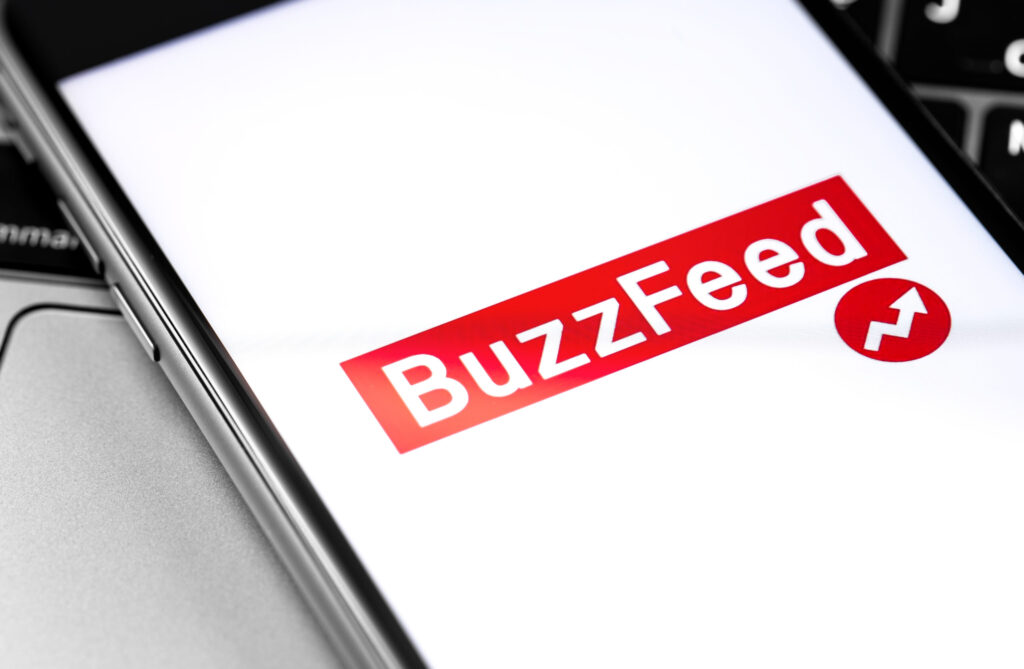BuzzFeed’s results serve as warning for progressive ‘explanatory’ journalism
March 23, 2022
BuzzFeed, which was once the darling of progressive “explanatory” journalism — that’s journalism that pretends to explain issues when it really propagandizes them — has become a cautionary tale for similar digital media companies such as Vox and Vice, all of which once believed that they could simply insert progressive talking points in between clickbait articles aimed at youth and the world would be theirs.
And ironically, it took positive financial results from BuzzFeed this week to fully reveal the extent of the caution that the BuzzFeed tale imparts.
For a few years, BuzzFeed has struggled under both the weight of expectations and the weight of its financial calculations as it tried to buy up complimentary digital media pieces, like the HuffPost and Complex Networks and make its whole bigger than the sum of its parts.
It was the age-old corporate struggle that looked to combine several companies that earn $2 apiece and somehow save a dollar in the process, with the result that the combined companies end up making $5 in total.
At one point the New York Times called BuzzFeed “one of the fastest-growing digital publishers. It was “hailed as the future of news media.”
But the trouble with BuzzFeed – and Vice and Vox and HuffPost — was that by design, they were always going to be weighed down by their commitment to progressive news and commentary, as AIM reported in January.
And the companies were only too happy to underwrite progressive news at a loss as a part of their mission to save the world.
BuzzFeed CEO Jonah Peretti, responding to critics who said the news division and its associated app cost the company money, said in 2015 that the losses didn’t matter.
Progressive news was important in their strategy because it gave the company the ability to “punch way above [its] weight and play an important role in culture, society, and the political process.”
“In short, news is good for the world, it’s good for business, and it’s good for our company culture!” Peretti said on the launch of the news app. But that commitment to progressive news hasn’t been so good for the bottom line, and that’s become an issue as the economy has gone from good to bad.
One can paper over a lot of troubles in a poorly run company when the economy is good. But when that Great Reset– also called a recession– comes along, financial mismanagement, poor planning and misshapen strategy tends to get found out.
Because the news divisions also created expenses for BuzzFeed way above its weight class as well, expenses that BuzzFeed and others still haven’t figured out how to defray, not to mention turn into a profit.
That’s why BuzzFeed and their digital compatriots at Vox, are still soliciting donations from the public, as they give away tote-bags for those who donate more than $100 like they are public television stations, doing a weekend fund drive, and not a for-profit public company like Chevron.
Imagine if in this crisis in oil, Chevron was asking for $5, $10 and $20 donations from drivers just like you, in exchange for a reusable tote bag that can replace the plastic bags you use at the grocery store.
Yes, it’s like that.
That why BuzzFeed shareholders are putting pressure on Peretti to scrap BuzzFeed’s entire news division according to CNBC.
About a week ago BuzzFeed itself broke the news that it would be “retiring” its news app, because, as BuzzFeed explained it, the news staff started questioning “whether or not it was worth disrupting a user’s day” with notifications from the app about breaking news.
Yes, it’s like that.
In short, news was good for the world, it was good for business, and was good for BuzzFeed company culture! But CEO Jonah Peretti didn’t want to bother users with it anymore.
Then this week the full story tumbled out as BuzzFeed reported earnings for a stock that has lost close to half its value since going public: Employees made news as they sued the company for nearly $9 million in losses related to a bungled stock offering by BuzzFeed in December, which AIM covered.
Then ironically, the company’s earnings were actually good, with revenues up 24 percent year-over-year, and net income up 132 percent.
And, yes, like that, it looks like the company actually has a chance to be a going concern, if it weren’t for being a progressive news organization.
“One shareholder told CNBC shutting down the newsroom could add up to $300 million of market capitalization to the struggling stock,” said CBNC. It’s a demand shareholders have been making for BuzzFeed since before last summer, as AIM.org reported here.
That could bring the company’s market capitalization to a billion dollars from its current mark at $700 million.
But to do that, BuzzFeed has to stop being a progressive news content producer.
And yes, just like that, their whole strategy would work, if they could just stop peddling progressive politics.
In one way, it seems almost cruel, but in another way, it seems poetically just.
